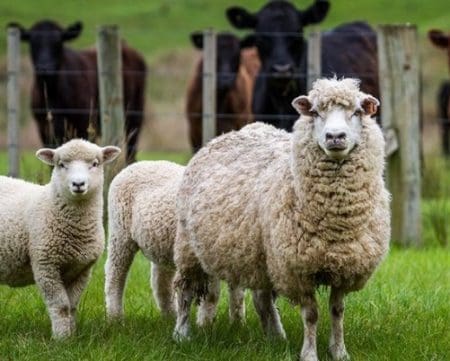 THE Federal Government has released greater detail on the proposed contribution of agricultural industry sectors under its biosecurity protection levy proposal.
THE Federal Government has released greater detail on the proposed contribution of agricultural industry sectors under its biosecurity protection levy proposal.
Click here for details of how much your industry sector might expect to pay if the levy comes into force on 1 July this year as proposed.
The release of the proposed industry sector contributions based on the proportional share of total Gross Value of Production (GVP) yesterday shows the beef sector would make a $9.3 million contribution, followed by sheep meat about $3m, wool $1.8m, and goat meat and fibre about $1m.
The grains sector would be contributing about $12.2m and fodder $1.5m, to a total BPL pool of $51.8m.
The Federal Government also today published an Imported Food Notice (IFN) 03-24 advising stakeholders of its 2024-25 Biosecurity Cost Recovery Implementation Statement and pricing tables on DAFF’s ‘Have Your Say’, platform.
The release of the data comes before the first public hearing on 23 April of a Rural and Regional Affairs Transport and Legislation Committee inquiry into associated legislation proposed by the government.
The RRAT inquiry into the Agriculture (Biosecurity Protection) Levies Bill 2024 [Provisions] and related bills will hold a public hearing on Tuesday 23 April in Committee Room 2S1 of Parliament House in Canberra.
On 21 March 2024, the Senate referred the Agriculture (Biosecurity Protection) Levies Bill 2024 [Provisions], the Agriculture (Biosecurity Protection) Charges Bill 2024 [Provisions] and the Agriculture (Biosecurity Protection) Levies and Charges Collection Bill 2024 [Provisions] to the RRAYT Legislation Committee for inquiry and report by 10 May 2024. The inquiry received 55 submissions up to 10 April 2024.
Peak sheep and wool bodies voice submit opposition to the BPL
In WoolProducers Australia’s submission to the RRAT inquiry, WPA chief executive officer Jo Hall said the peak grower body strongly opposes the introduction of proposed levy.
“The subpar consultation process undertaken by the government on the BPL has only added to the angst felt by producers and the broader agriculture sector.
“This proposal, even by the government’s own Office of Impact Analysis standards, is poor policy compounded by an even worse attempted implementation,” she said.
“The unbalanced and illogical nature of this levy undermines the agreed roles and responsibilities of government and non-government stakeholders.
“The proposed levy seemingly dismisses the existing significant financial and in-kind contributions that Australian producers already make towards the national biosecurity system in pursuit of what can only be deemed as an easy revenue stream to subsidise Commonwealth biosecurity activities,” Ms Hall said.
Peak sheep meat grower body Sheep Producers Australia also said it cannot support the government’s BPL proposal.
“The poor design of the levy has been laid bare in critiques by experts from some of our most respected national institutions including The Productivity Commission, Office of Impact Analysis and the Australian National University, SPA CEO Bonnie Skinner says in the body’s submission.
“Our further objections to the BPL relate to the complete absence of industry consultation prior to its announcement, and the rushed, unrealistic approach to implementation, which leaves industry with little time to comprehend let alone prepare for the impost of the BPL.
“This is at odds with the well-established agricultural levy system, which is underpinned by principles of equity, efficiency and transparency and clearly demonstrates the willingness of producers to co-invest with government in priorities that drive growth, maintain competitiveness and manage risks for collective benefit,” she said.
For further details about the RRAT inquiry and to review other submissions click here.
After limited consultation, the government decided the rate of the proposed BPL will no longer be set equivalent to 10 percent of 2020-21 agricultural levy rates (as originally announced in Budget 2023-24). Instead, rates will be based on each industry’s proportionate share of the total gross value of production (GVP) for the total agriculture, fisheries and forestry sector. However, the revised contribution model is still generally opposed by the agricultural sector.
Further information about the consultation and design are available on the department’s website at: www.agriculture.gov.au/biosecurity-funding
The Department of Agriculture Fisheries and Forestry said yesterday it is continuing to engage with industry on intended imposition and collection arrangements, and will be contacting industry representative bodies with proposed BPL rates over the coming weeks.



We need a farmer strike. This is just not fair. Farmers export, risks pertaining to biosecurity are from imports.
I’m going on strike. I will not load any stock in the first two weeks of July, except for export.